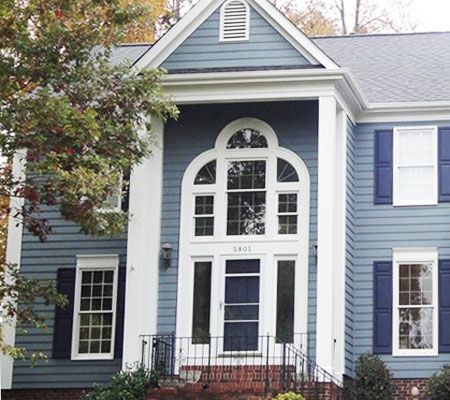

You’ve probably heard that replacing your windows can save you money on your energy bills and increase the value of your home, but how do you know when it’s time for replacement windows? Here are three strategies you can use to determine if you need new windows.

Consider the Comfort Of Your Home
When you’re in a home with aging windows, your comfort levels are impacted — especially during the winter. Do you feel a draft when you walk too close to the windows? Are rooms with more windows colder than those that have few windows? Maybe it feels like the home cools down again very quickly after it heats up. These are all signs that your windows are leaking a substantial amount of heat. Replacement windows will do a much better job of keeping the heat inside, so you don’t have to snuggle up in five blankets even though you have the thermostat set to 70 degrees.
Physically Examine Your Windows
There are many visual signs that can indicate that your windows have seen better days and are due for a replacement. Take a close look at your windows. Do you see cracks in the frame, or maybe even in the glass panes themselves? This is a sign that a lot of heat is able to leak through your windows, driving up your energy costs. Do you see frost forming on the inside of the windows when it’s chilly outside or condensation forming when it’s warmer out? Both of these issues indicate that your windows are insulating poorly.
You can also touch the glass. On a cold day when your furnace is running, your windows should feel warm. If they’re cold to the touch, this is a sign that points to replacement. Similarly, on a hot day when your air conditioning is running, your windows should feel cool. If they are hot to the touch, this means your windows are doing a poor job of keeping the outdoor heat from entering your home.
Also note how many panes of glass are found in each window. If you have old, single-pane windows, you absolutely could stand to replace them. These dinosaurs are significantly less efficient than the double-pane, energy-efficient windows sold today.
Compare Your Energy Bills to Others’
Windows are one of the primary sources of heat loss in homes, so if your energy bills are abnormally high in the winter, there’s a good chance your aging windows are to blame. Seek out friends and relatives who have homes that are about the same size as yours. How do their energy bills compare? Unless you can come up with another very good reason why yours are higher (for instance, you have four kids and they have one, or you heat your home to 72 degrees while they keep theirs at 60), a vast difference in energy costs likely means you should upgrade your windows.
If you’re having trouble finding friends to compare with, contact your local energy company. They should be able to give an idea of the average energy bill for similarly sized homes in the area. If you’re much above the average, this is a sign you should consider replacement windows.
In addition to the strategies above, a good way to tell if you’re due for a window replacement is to schedule a consultation with Renewal by Andersen Midwest. They can inspect your current windows and tell you how much you can expect to save on your energy bill by replacing them with newer, energy-efficient models.